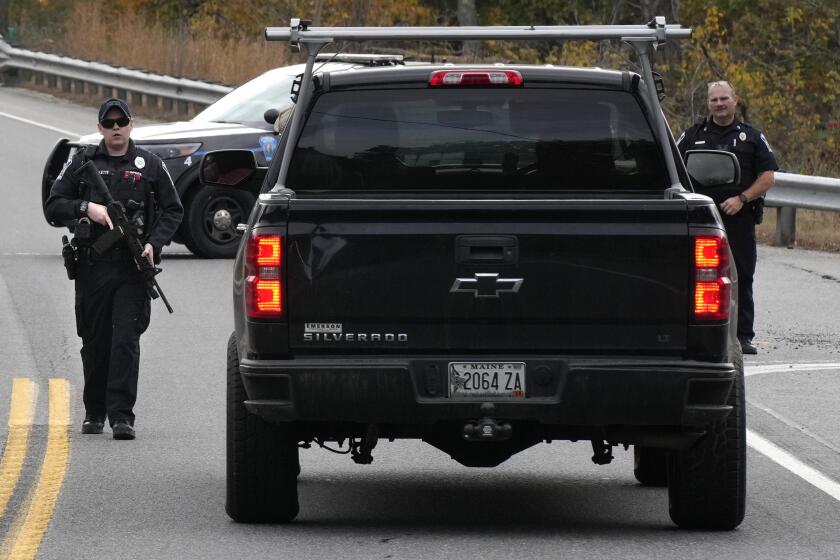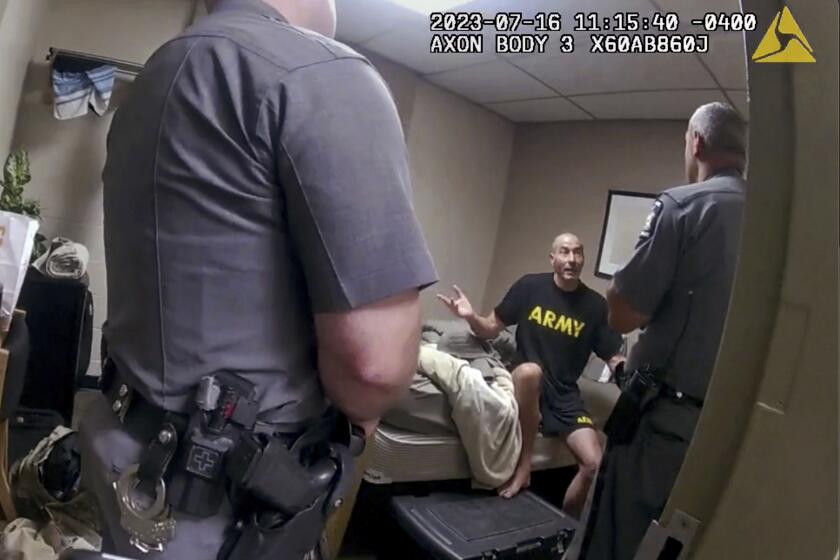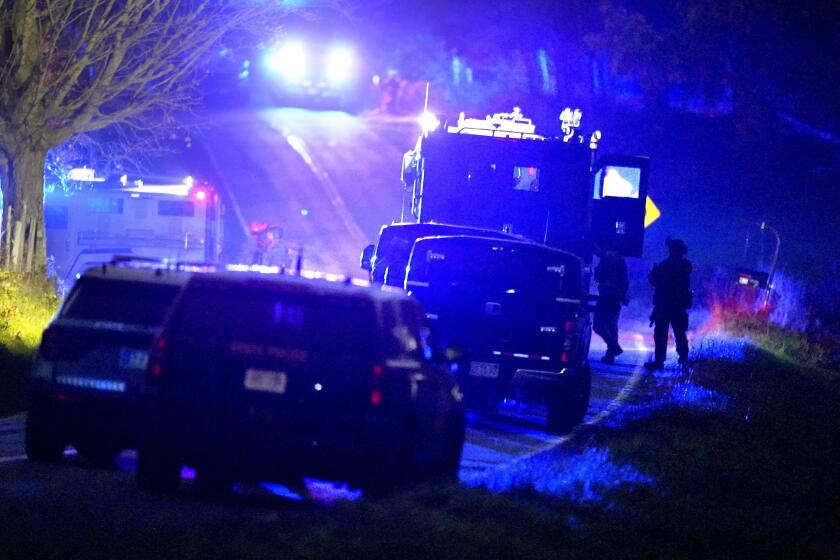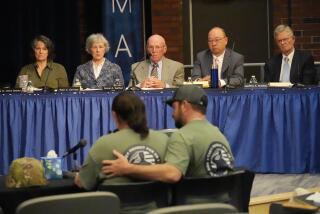Fellow reservists who served with Maine killer before mass shootings say they warned of his decline

AUGUSTA, Maine — Fellow U.S. Army reservists who witnessed the mental and physical decline of a colleague who would commit Maine’s deadliest mass shooting told a commission investigating the killings Thursday that they tried to intervene before the tragedy.
Six weeks before Robert Card killed 18 people at a bar and a bowling alley in Lewiston, his best friend and fellow reservist, Sean Hodgson, texted their supervisors, telling them to change the passcode to the gate at their Army Reserve training facility and arm themselves if Card showed up. The Lewiston killings happened Oct. 25 — exactly six months before Thursday’s hearing.
“I grieve every day for the many lives that are lost for no reason and those that are still affected today,” Hodgson said before testifying Thursday.
Hodgson told superiors on Sept. 15: “I believe he’s going to snap and do a mass shooting.” That message came months after relatives had warned police that Card had grown paranoid and said they were concerned about his access to guns.
Authorities say 18 people were killed and 13 injured at two locations Wednesday night in Lewiston, the second-largest city in Maine.
The failure of authorities to remove guns from Card’s possession in the weeks before the shooting has become the subject of a months-long investigation in the state, which also has passed new gun safety laws since the tragedy.
Card also spent two weeks in a psychiatric hospital in July, and the Army barred him from having weapons on duty. But aside from briefly staking out the reserve center and visiting Card’s home, authorities declined to confront him. He was found dead of a self-inflicted gunshot wound two days after the shootings.
In an interim report released last month, the independent commission launched by Gov. Janet Mills concluded that the Sagadahoc County Sheriff’s Office had probable cause under Maine’s “yellow flag” law to take Card into custody and seize his guns. It also criticized police for not following up with Hodgson about his warning text.
On Thursday, another fellow reservist, Daryl Reed, said he told the commission he witnessed firsthand the mental and physical decline of a colleague who went from a “normal guy” who traded stocks and loved being outdoors to becoming paranoid and believing others were calling him a pedophile.
Card also acquired expensive night vision equipment that he said he used for hunting, Reed said. Reed said fellow reservists started to become concerned Card could become a danger to colleagues, and they informed their superiors.
Robert Card, an Army reservist who shot and killed 18 people in Maine last year, had significant evidence of traumatic brain injuries, according a brain tissue analysis.
In January, Hodgson told the AP he met Card in the Army Reserve in 2006 and that they became close friends after both divorced their spouses around the same time. They lived together for about a month in 2022, and when Card was hospitalized in New York in July, Hodgson drove him back to Maine.
Growing increasingly worried about his friend’s mental health, Hodgson warned authorities after an incident in which Card started “flipping out” after a night of gambling, pounding the steering wheel and nearly crashing multiple times. After ignoring his pleas to pull over, Card punched him in the face, Hodgson said.
“It took me a lot to report somebody I love,” he said. “But when the hair starts standing up on the back of your neck, you have to listen.”
Some officials downplayed Hodgson’s warning, suggesting he might have been drunk because of the late hour of his text. Army Reserve Capt. Jeremy Reamer described him as “not the most credible of our soldiers” and said his message should be taken “with a grain of salt.”
The Maine Legislature has approved sweeping gun safety legislation nearly six months after the deadliest shooting in state history.
Hodgson said he struggles with post-traumatic stress disorder and alcohol addiction but said he wasn’t drinking that night and was awake because he works nights and was waiting for his boss to call.
The commission also heard from the state’s director of victim witnesses services, and more Army personnel were expected to testify. Cara Cookson, director of victim services for the Maine office of the attorney general, described through tears the daunting task of responding to the tragedy with a “patchwork of resources.”
Later Thursday, the Maine Resiliency Center, which provides support to people affected by the killings, planned to hold a six-month commemoration event at a park in Lewiston.
Sharp and Whittle write for the Associated Press.
More to Read
Sign up for Essential California
The most important California stories and recommendations in your inbox every morning.
You may occasionally receive promotional content from the Los Angeles Times.













